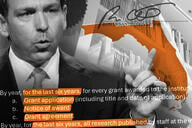You have /5 articles left.
Sign up for a free account or log in.
A professor's plan to let students in his Coursera massive open online course moderate themselves went awry over the holidays as the conversation, in his words, “very quickly disintegrated into a snakepit of personal venom, religious bigotry and thinly disguised calls for violence.” But some students have accused him of abusive and tyrannical behavior in his attempts to restore civility.
The 10-week course, titled “Constitutional Struggles in the Muslim World,” is taught by Ebrahim Afsah, associate professor of public international law at the University of Copenhagen. His experiences highlight an important challenge that the scale of MOOCs presents: How do you wrangle tens, perhaps hundreds of thousands of students into staying on topic? A traditional face-to-face course might fare well with one or two troublemakers, but those interruptions are magnified when enrollment reaches the thousands -- especially if those students can post anonymously.
In the syllabus, Afsah wrote students were free to join the course without any prior knowledge of Islamic beliefs or constitutional law. “Rather than assuming a common frame of reference, it is expected that students’ diverse disciplinary backgrounds will complement each other,” he wrote.
Seven weeks into the course, the phrase rings of wishful thinking. The plan to let students themselves weed out incendiary forum posts using Coursera’s flagging and comment voting system went about as well any other internet forum without ever-vigilant moderators -- not to mention the forum invited students from around the world to discuss delicate topics such as the Arab Spring, nuclear weapons and the War in Afghanistan. Debates quickly devolved into heated discussions about Israel's role in the Middle East and the role of women in Islam, with students propagating their own religious beliefs.
By week two, Afsah announced a more hands-on approach:
“I will not tolerate abusive language, self-righteous posturing, baseless assertions just for the sake of being ‘right’ and anything likely to damage the enjoyment of this course for all,” he wrote. “Those in the class that have engaged in such behaviour have now been warned and henceforth violators of common decency will be aggressively taken off the forums and, if need be, relegated from this course.”
Afsah meant business. He said he has so far banned four students from posting (but not from the course altogether), including a Roman Catholic from Brazil “with very little knowledge or interest in the issues of the course apart from reeling in controversy,” a Protestant or Jewish woman “who was just personally extremely offensive to fellow students, using very foul language and ultimately resorting to very insulting statements about Islam” and a non-Muslim Asian student he described as a “troll with very little interest in the subject matter as such but great interest in stoking controversy and personal animosity.” The bans, Afsah said, "cover pretty much all the big monotheistic religions."
Several students, however, have questioned Afsah’s rationale behind the bans, and some have described his actions -- and occasional sarcastic responses -- as discriminatory. (Note: Registering is required to view the discussion forum.) One American student, who spoke on the condition of anonymity, said she felt as though taking the course could be compared to “living with an authority figure that just abusing his power.”
“What you have here is ... an incompetent, abusive teacher who’s publicly abusing the public trust in front of the whole world,” the student, who joined the MOOC about halfway through the current session, said in an interview. “The whole thing, as it continued -- it’s taken on the guise of freak show, really.”
The student supplied numerous screenshots of posts showing Afsah cracking down on some of the debates. In one post, Afsah warns students that “if you don’t show some respect for one another’s religious beliefs, this thread will be closed.” In another, he calls a comment “about Christ being the son of god [as showing] a deplorable lack of awareness for different religious dogma.”
The student also criticized Afsah for his views on postmodernism, which he described in an email as a “dangerous coterie of charlatans.”
Afsah pointed out that only four students out of a total of more than 35,000 enrolled students have had their posting rights removed.
“Basically, given the nature of this course's subject matter which is controversial in the extreme and the personal risk, both physical and to my academic reputation, that I am incurring in teaching it, you will understand that I need to keep a relatively tight ship,” he said.
Today, the MOOC still features passionate debates, but most of the threads have remained on topic and steered clear of the name calling of the first weeks. In one recent thread, one student even suggested his classmates -- “a pretty incredible bunch of people,” he wrote -- pat themselves on the back. “Why? Well having completed quite a few Peer Assignments on a variety of courses this is the first course where the fora have not been flooded with vitriol and complaint after the results announced,” the student wrote.
Too Off Topic?
While Afsah’s stricter moderation policies appear to have stamped out most of the spam, some students have also complained about a thread titled “‘Really Really Ridiculously Good Looking’ Middle Eastern Men (warning: off topic!),” which as the name suggests has nothing to do with the course material.
“Given all the scrutiny that has been aimed at Dr. Afsah's eye color, hair product, and sartorial choices, I thought there might be some interest in this article,” the thread begins, linking to one website’s ranking of 12 handsome Middle Eastern men -- before going even further off track.
A handful of students posted to say such a thread belongs on Facebook, not in a Coursera course. “Would you say any of these things out loud in a classroom and think it was appropriate?” one student wrote. “And, would you condone a fellow student posting a link to sexy, partially dressed women?”
Other students welcomed a place for more informal discussion and thanked the author of the thread for creating it. “This class is such an interesting subject, but also so very serious, that a little laughter is definitely needed,” one student wrote.
Afsah said the students in the MOOC have probably seen more offensive content if they have spent any time on the internet, but he encouraged students to flag any content they find offensive.
“I don't read each and every thread very carefully in this course, especially not one that is clearly labeled ‘Off topic,’ ” Afsah said. “As long as it stays friendly in tone, I saw (and see) no need to interfere. Again, this is a very intensive course, both with respect to the work load and the subject matters discussed. A little bit of lightheartedness is fine.”




